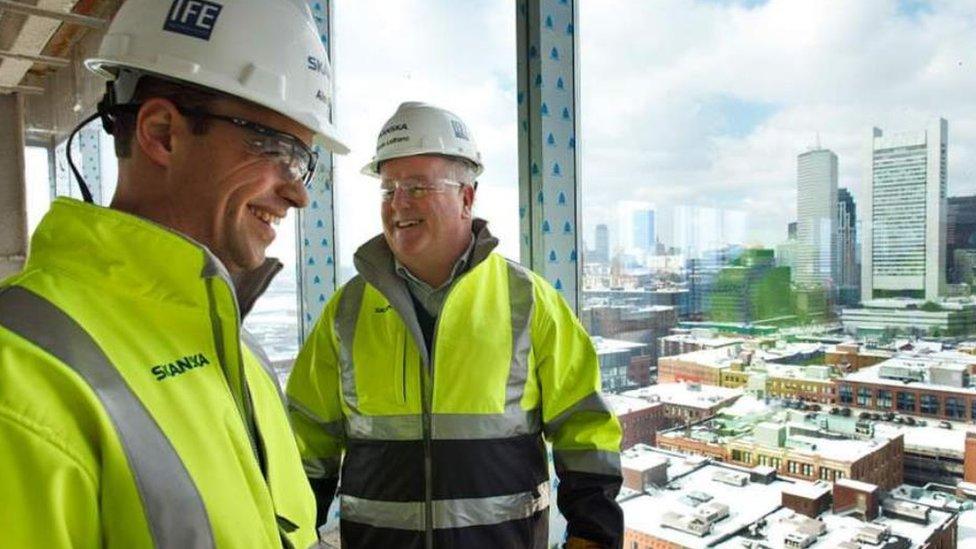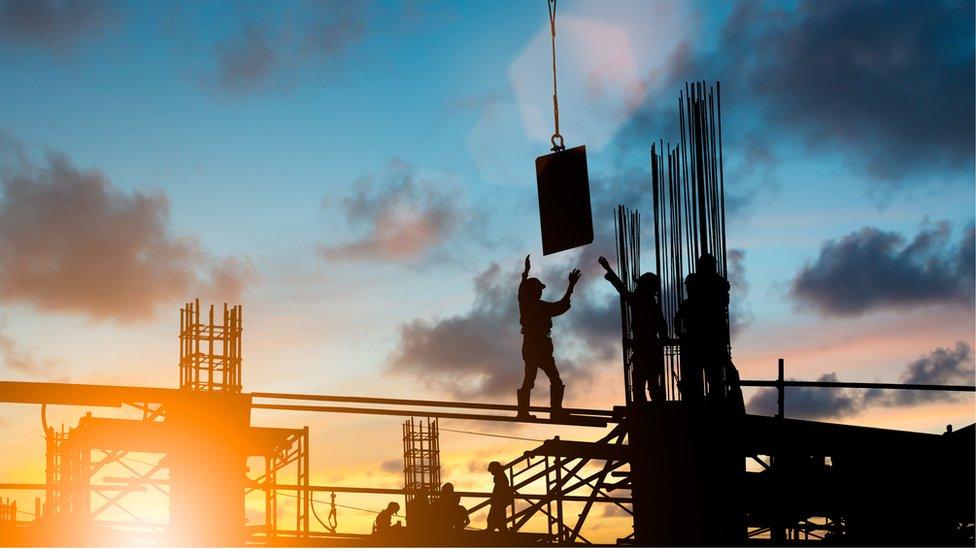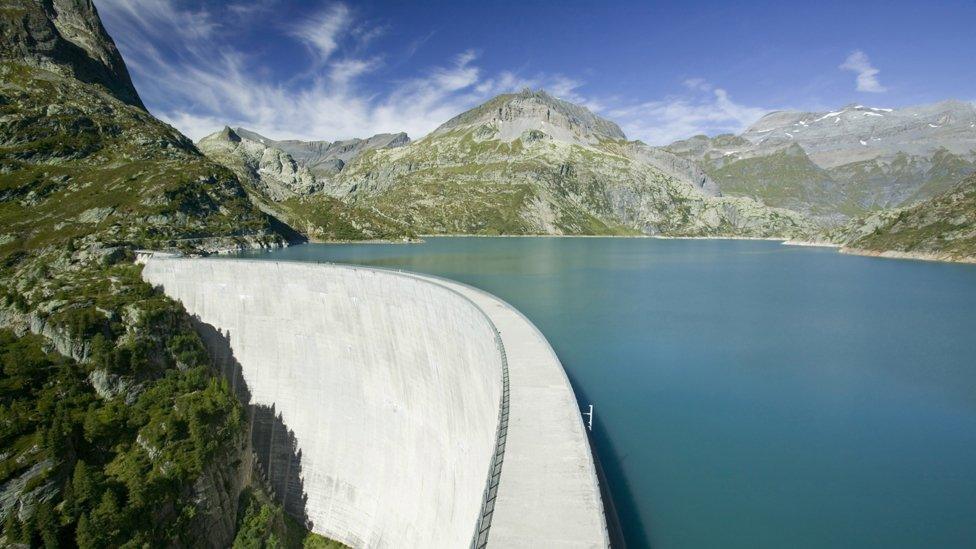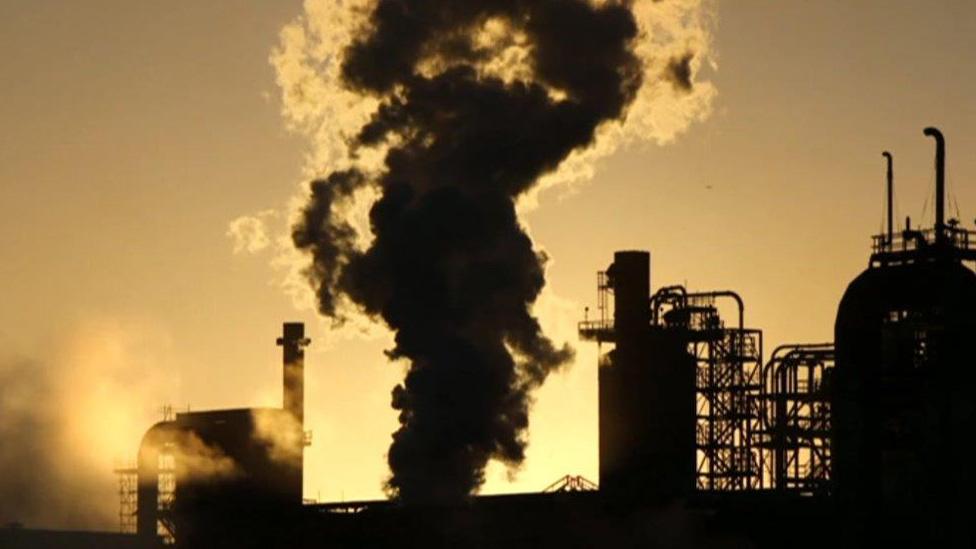Construction industry 'not reporting full carbon impact'
- Published

The boss of one of the UK's biggest infrastructure builders has told BBC Radio 5 Live that the construction industry is "not reporting its full impact" on the environment.
Speaking to BBC Radio 5 Live's Wake Up To Money, Skanska UK's chief executive Gregor Craig said companies only calculate their own carbon emissions, and do not reflect the environmental cost of their supply chains.
Skanska has set a target of net-zero carbon emissions by 2045 in the UK.
The company has directly emitted around 35,000 tonnes of CO2 every year since 2010 - about the same as 7,500 cars - but the figure is more than 10 times higher after taking into account suppliers' emissions.
Mr Craig said: "At the moment, the construction industry is not reporting its full impact.
"So what construction companies have been doing, is that we're reporting our direct emissions - from our offices, fleet and our plant. What we're not reporting is the full scale of the emissions from all of our projects; the large part of this is in the supply chain."
Skanska is a Swedish company which employs nearly 6,000 people in the UK and it is worth almost £2bn. It helps maintain the London Underground and is building a £1bn link connecting up Victoria and Piccadilly stations in Manchester.
Mr Craig said the one of the biggest carbon emitters is concrete - because of the cement products within it, and said there are easy ways to reduce the impact: "If our supply chain is constructing a 200mm thick concrete slab, if they could make it just 180mm thick, then it would automatically save 10% of their emissions. It can be as simple as that in some cases."
Mr Craig admitted that investors often put returns ahead of carbon targets and that his business could be undercut by rivals, but said a greener approach can cut costs: "We see carbon reduction as good for business.
"We've been working work with Anglian Water for a number of years, and since working with them they've reduced their carbon emissions by 55%, and they've saved 25% of cost."
- Published24 October 2018

- Published17 December 2018

- Published14 January 2020

- Published11 February 2019
